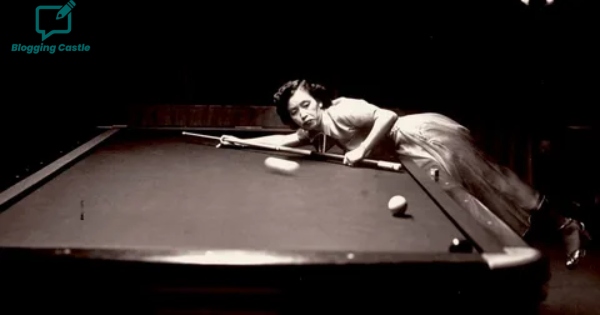Pool Halls Masako Katsura has been a fixture in the Tokyo nightlife scene for over two decades. She is an accomplished singer, songwriter, and performer, and her songs reflect her unique perspective on life. In this blog post, we’ll look at the life and times of Pool Halls Masako Katsura to see what makes her so unique. We’ll also explore some of her most famous songs and learn about their inspiration.
The Masako Katsura Story
Pool Halls Masako Katsura is a Japanese billiards player who has won numerous accolades, including the World Ten-Ball Championship in 2006 and 2009. Born in 1976, Katsura began playing pool at eight, taught by her father. A natural talent, she quickly became one of Japan’s top players. In 2003, she competed in the World Professional Pool Championships, where she partnered with Hiroyuki Imaizumi to win the gold medal.
Katsura’s success has been noticed in Japan. She was named “Women’s Sportsperson of the Year” by the International Olympic Committee (IOC) in 2006 and 2007 and received an Order of Culture from the Japanese government in 2009. In 2013, she was appointed Deputy Governor for Tourism for Shizuoka Prefecture. Katsura currently resides in Tokyo with her husband and two children.
The Pool Halls of Japan
The pool halls of Japan are some of the country’s most popular and enduring destinations. The simple wood-paneled walls, polished floors, and chrome pool tables are a familiar sight to anyone who has ever visited Japan. Pool halls have been around Japan for centuries, and they remain popular today because they offer a fun and relaxing atmosphere.
Companies or families usually own pool halls in Japan, and they often serve as places where employees can socialize. They are also popular tourist destinations; many people visit them to enjoy the atmosphere. Pool halls in Japan offer a variety of games, including straight pool, nine-ball, and eight-ball.
Some of the best pool halls in Japan can be found in Tokyo, Osaka, Kobe, and Kyoto. There are also several pool halls located in smaller cities across the country. Anyone looking for a fun and unique experience should visit a pool hall in Japan!
The Making of a Legend
Pool Halls Masako Katsura is a legend in the pool community, and for a good reason. The Japanese pool hall veteran has won numerous world championships, was inducted into the Billiards Congress of America’s (BCA) Hall of Fame in 2007, and was recently named one of ESPN’s Top 50 Greatest Female Athletes of All Time.
Masako Katsura’s early years were spent in Kyoto playing street ball with her brother. It wasn’t until she was older that she discovered billiards and fell in love with the game. At 16, she moved to Tokyo to attend Waseda University, where she met three other future pool players: Ryutaro Nakaoka, Seigo Asano, and Yoshiharu Nakamura. The quartet would go on to form the Japan National Team together and dominate the amateur ranks for several years.
In 1976, Masako competed in her first professional tournament –the Japan Open –and immediately proved herself as one of the best players in the world. Over the next few years, she would win numerous tournaments, including the World Professional Billiard Championship (WPC) and World Eight Ball Championship (WEC). In 1980, Masako became the third woman to win both tournaments simultaneously.
Masako’s success continued through the 1980s, winning multiple championships, including both world 10-ball championships as well as world championship titles in 8-ball and
Interview: Masako Katsura
Masako Katsura is a Japanese professional pool player who has won numerous championships. She started playing the game when she was seven and quickly became one of Japan’s top players. In this interview, Masako tells us about her life and career in the pool and gives tips for improving your game.
When did you first start playing pool?
I started playing when I was seven years old. I had always been interested in the game, and my parents were big fans of it as well. So they bought me a set, and from then on, I was hooked!
How did you become a professional pool player?
It took a lot of hard work and dedication to get to where I am today. It starts with learning how to play the game well – that’s number one. The second is practice – if you want to be good at something, you must practice a lot. And last but not least, having the drive to win – if you don’t have that inner fire inside of you, there’s no way you can achieve anything extraordinary in life.
What are your thoughts on the competitive nature of the pool?
It does play a significant role in how successful someone can be at the game. If you’re constantly striving to improve, you will quickly stay caught up with the competition, which is really why it’s so important to keep practicing and developing.
Conclusion
Pool halls are home to some of Japan’s most colorful characters. Masako Katsura is one such character. In this book, she tells her story – from her early day’s hustling pool as a child in Hiroshima to becoming one of Japan’s most famous professional players and then turning commentator. Along the way, Katsura shares anecdotes about some of the greats who have played at her favorite haunts, including Willie Mosconi, Steve Mizerak, and Johnny Smith. This book offers a fascinating glimpse into Japanese pool culture and is entertaining for anyone interested in sports or history.
